Diane Arbus:
An Aperture Monograph
Diane Arbus: An Aperture Monograph is published in 1972. A year after her suicide at the age of forty-eight. At that time she was already a significant influence, even something of a legend, for serious photographers. But only a relatively small number of her most important pictures were widely known at that time. The publication of Diane Arbus: An Aperture Monograph changed that. Along with a posthumous retrospective at the Museum of Modern Art in New York City it offered the general public its first encounter with a significant number of Diane Arbus’ photographs. The response was unprecedented. Millions viewed the exhibition that subsequently traveled around the United States and Canada. And the book has achieved massive sales for a volume of such uncompromising photographs.
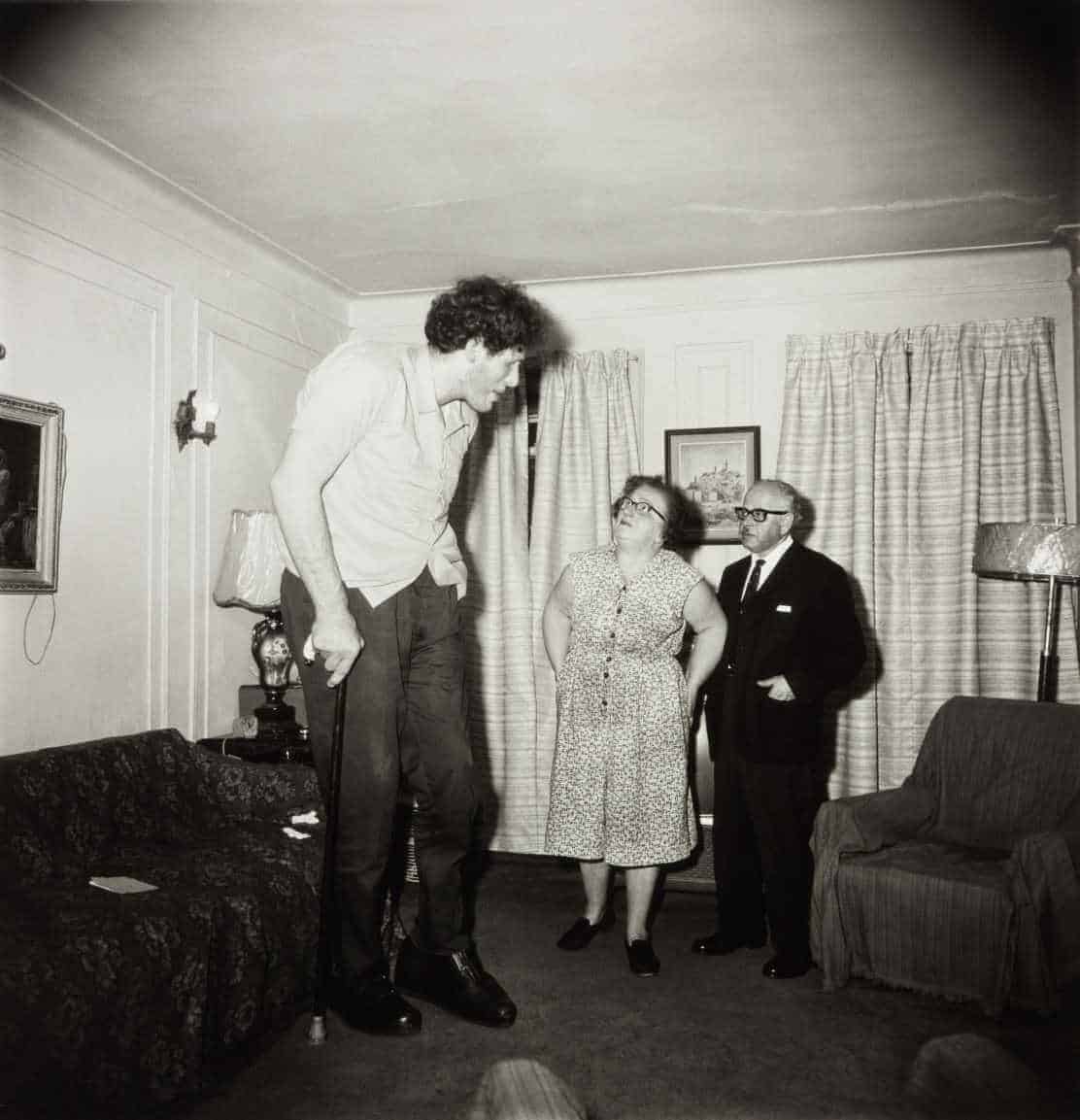
Diane Arbus was born in 1923 as Diane Nemerov into a wealthy New York family. She was introduced to photography in the early 1940s when she received her first camera. After the Second World War, Arbus, who by then had married photographer Allan Arbus, opened together with her husband a commercial studio that concentrated on fashion and magazine assignments. She studied with Lisette Model in the mid-1950s. An experience that encouraged her to leave commercial photography in 1956 to begin an independent career as a fine art photographer. Arbus began taking photographs in New York, that focused on communities outside the mainstream. Such as queer people and drag queens, people with physical and mental disabilities, circus performers and nudists. Many of these photographs center on identity – the way people present themselves and are seen within society. In 1959 she separated from her husband but they maintained their friendship. She officially divorced in 1969. On july 26, 1971 Arbus died by suicide.
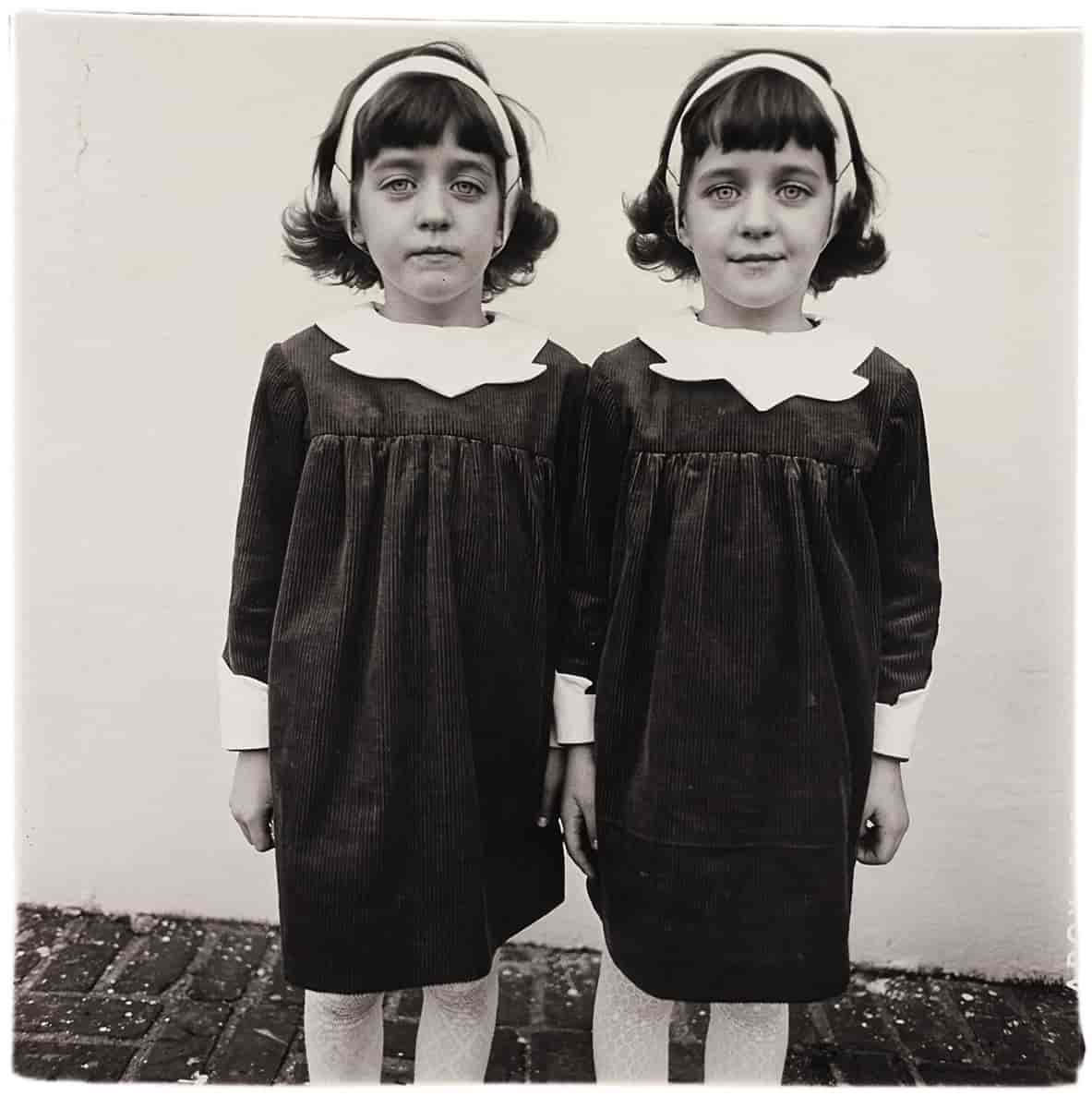
Universally ackowledged as a photobook classic. Diane Arbus: An Aperture Monograph is a timeless masterpiece and remains the foundation of Arbus international reputation. Diane Arbus: An Aperture Monograph is a mere trawl through her best-known images. But it is also a briliant exposé of American life. Its dissection of American society is as cogent and penetrating as that of Walker Evans in American Photographs or Robert Frank in The Americans. The book is a beautiful, sad, moving testament to the human condition.
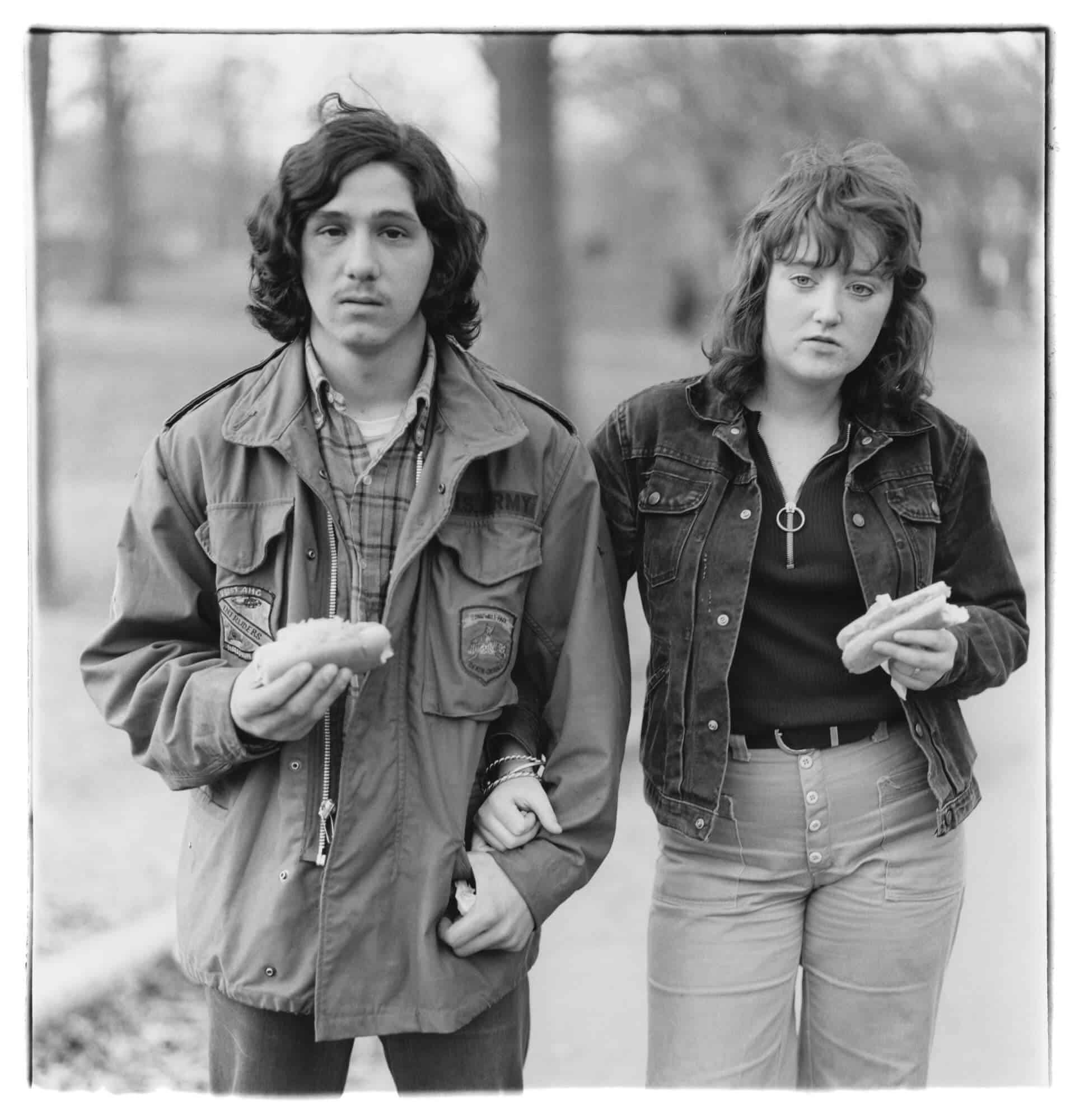
The book includes a text edited from her writings, interviews and tape recordings of classes that she gave in 1971. It contains eighty black-and-white photographs, many of Arbus’ most recognizable images. Each image is printed on the right page with a caption in a small, plain typeface at the bottom inner edge of the left page, which is otherwise left blank.
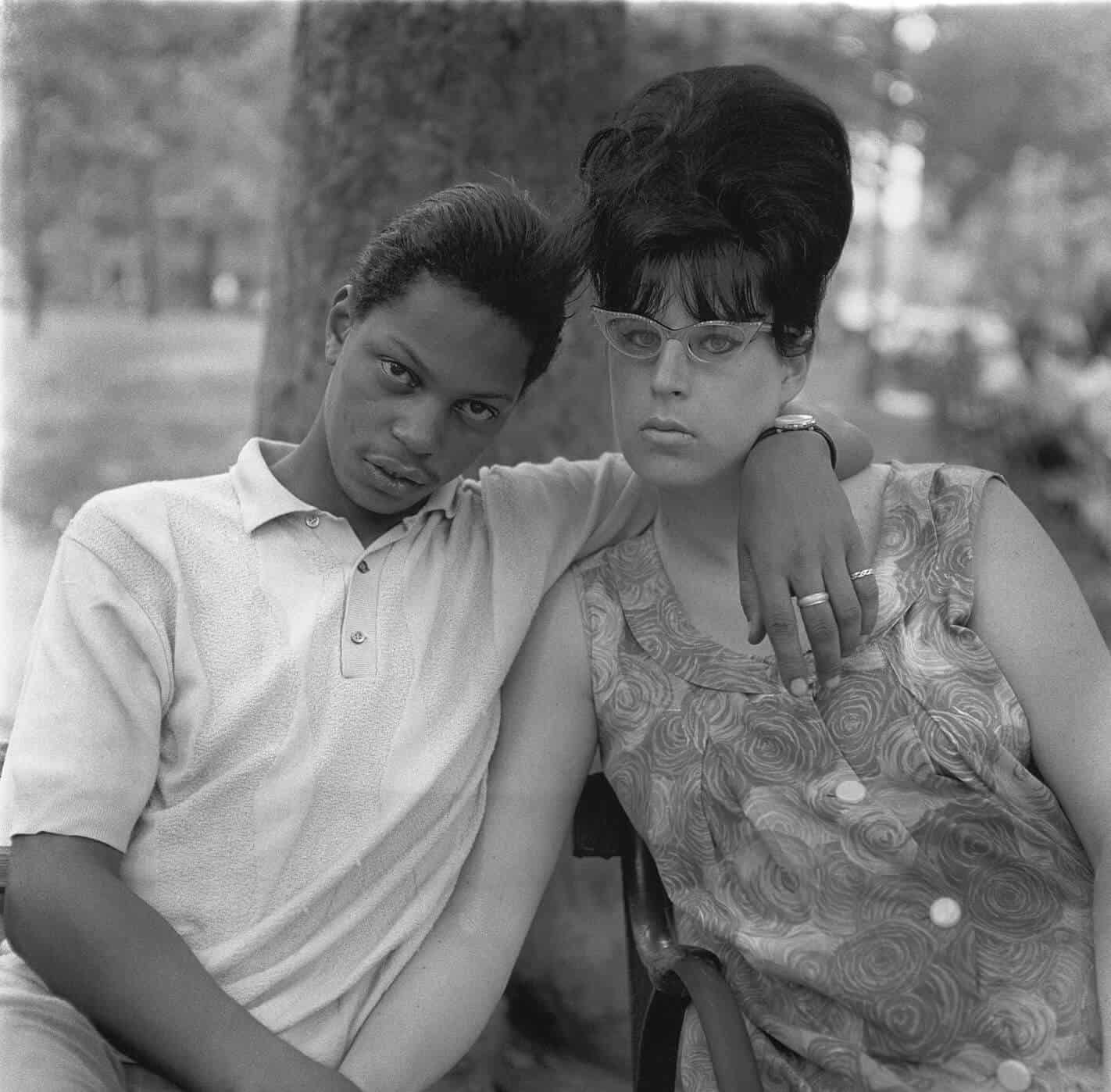
Arbus’ work focuses on individuals frequently marginalized or viewed as fringe outsiders by mid-century American society. She is regarded by many as little more than a voyeuristic photographer of ‘freaks’. Her photography uses direct, close-range poses against a soft or abstracted background to set the people as the focus in her images. This results in a penetrating gaze. Combined with her unusual sitters led to the accusations of aggresive ‘exploitation’ of her subjects.
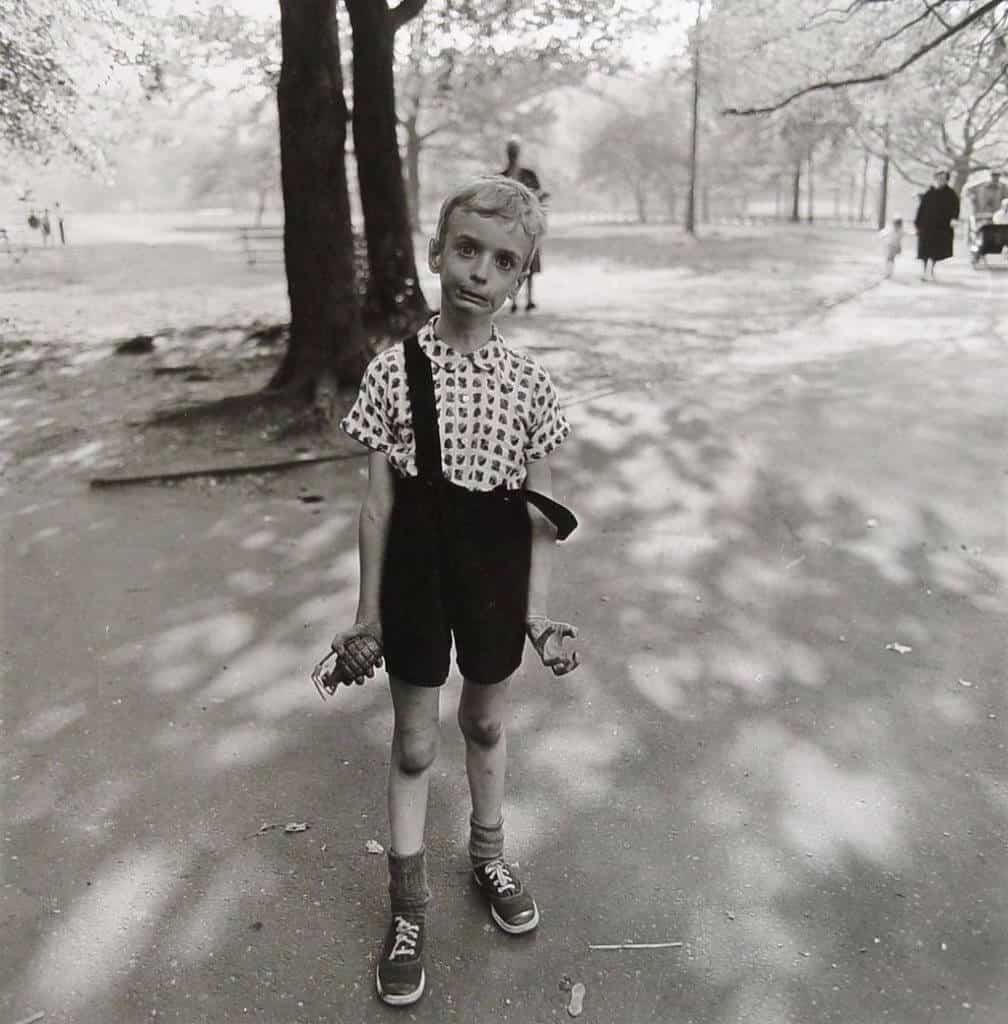
But if one looks beyond the superfical controversies one finds not only a complex, but a subtle artist. One working fully in the documentary mode. She made ‘normals’ look like ‘freaks’, but also made ‘freaks’ look like ‘normals’. Her women and girls are invariably strong. And her men are frequently damaged or uncomfortabble in their surroundings. She tended to rail against cruel nature or uncaring society rather than the individual, and was thus empathically with her sitters. The psychological tenor in Abus’s oeuvre varies from outright irony to gentle empathy, unequivocal delight to sheer desperation. Existential angst to righteous anger. Arbus’ photographs penetrate the psyche with all the force of a personal encouter and, in doing so, transform the way we see the world and the people in it. Arbus’ imagery helped to normalize marginalised groups.
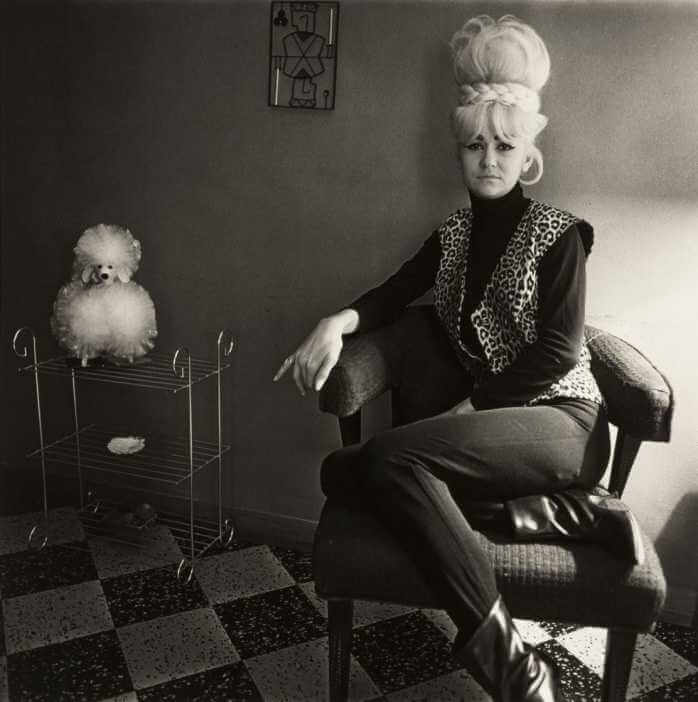
Initially derided Arbus’ legacy is now undeniable, having influenced three generations of photographers. Diane Arbus: An Aperture Monograph is now firmly established as a photobook classic. And after half a century her profound vision and penetrating gaze continue to provoke both praise and criticism. Diane Arbus: An Aperture Monograph has never been out of print. Aperture has now published the 50th anniversary edition printed in 2022.
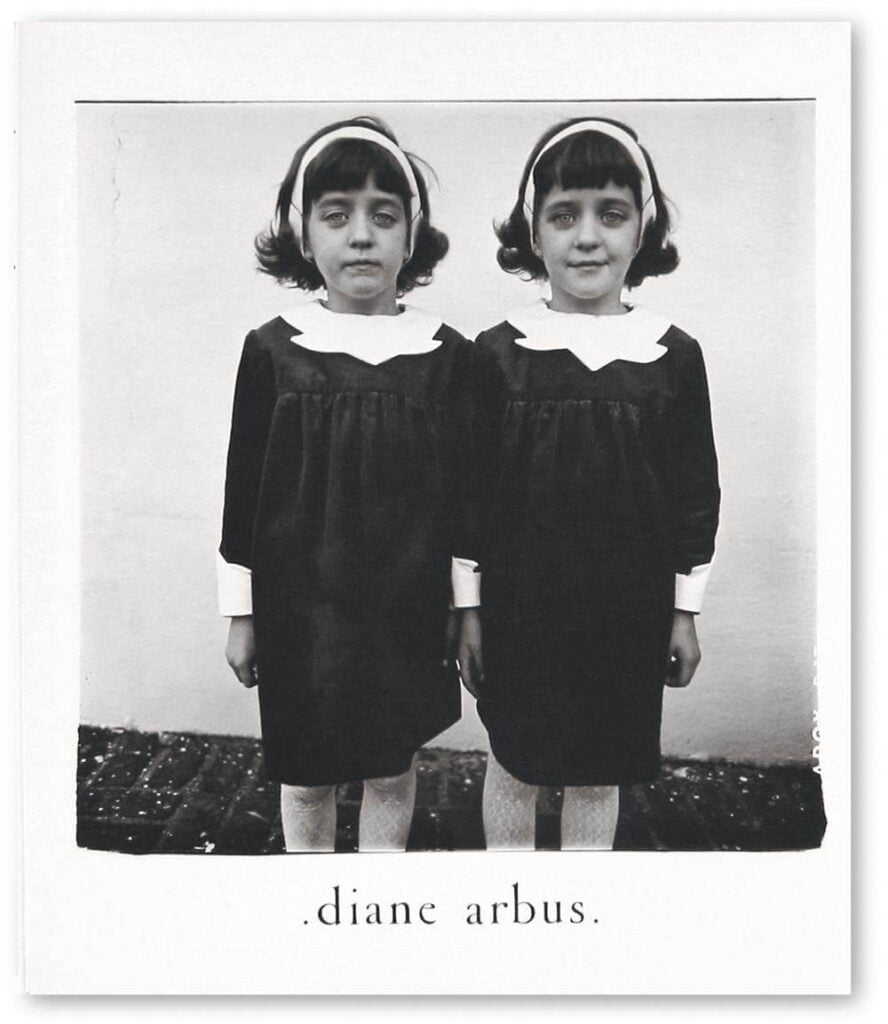
Diane Arbus: An Aperture Monograph
Photographer: Diane Arbus
Publisher: Aperture
Originally published in 1972
Hardcover with dust jacket
28,5 x 24 cm, 184 pages, 80 black-and-white photograps
Text by Diane Arbus from taped interviews and collected writings
Considered as one of the greatest photobooks of all time by Source Magazine
Mentioned in The Photobook: A History Volume 1,
Edited by Martin Parr and Gerry Badger
Mentioned in What They Saw. Historical Photobooks by Women 1843 – 1999,
Edited by Russet Lederman and Olga Yatskevich
